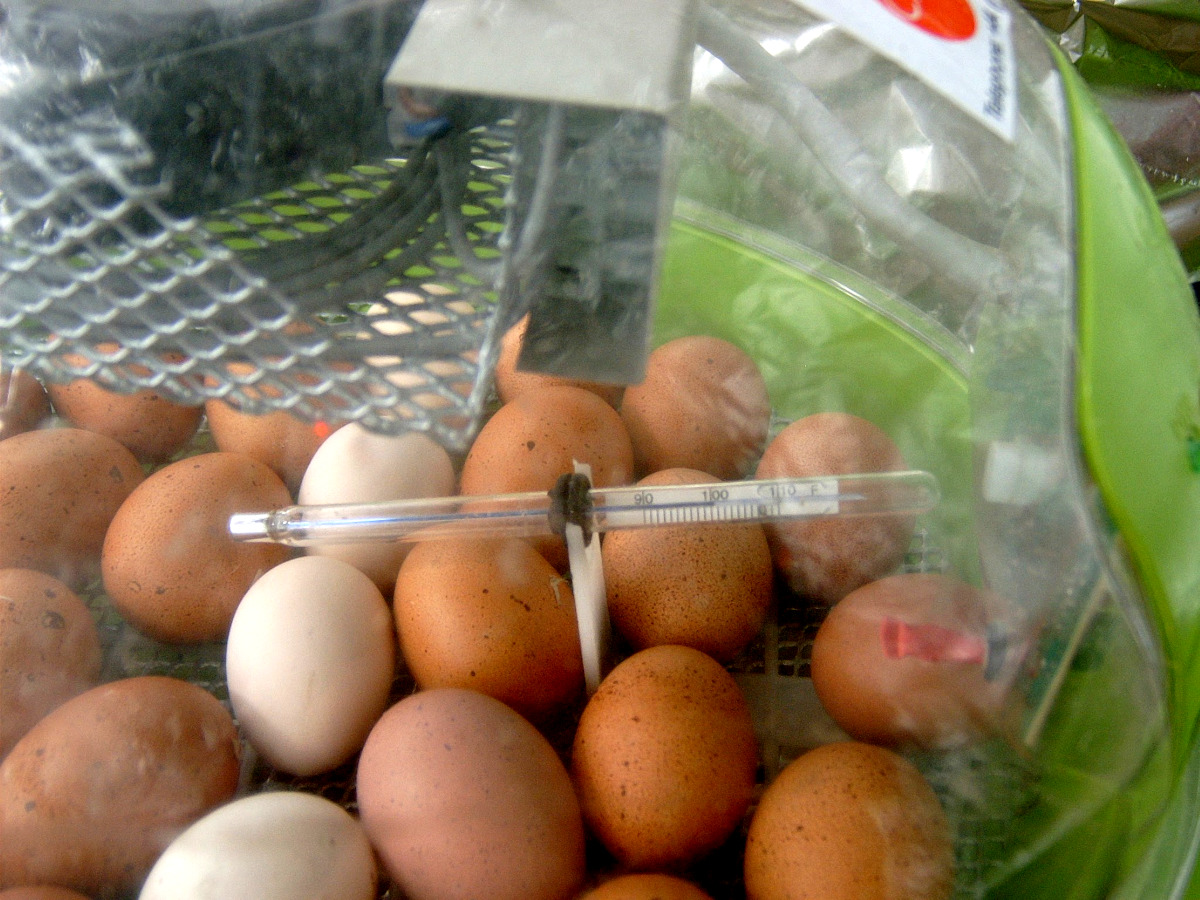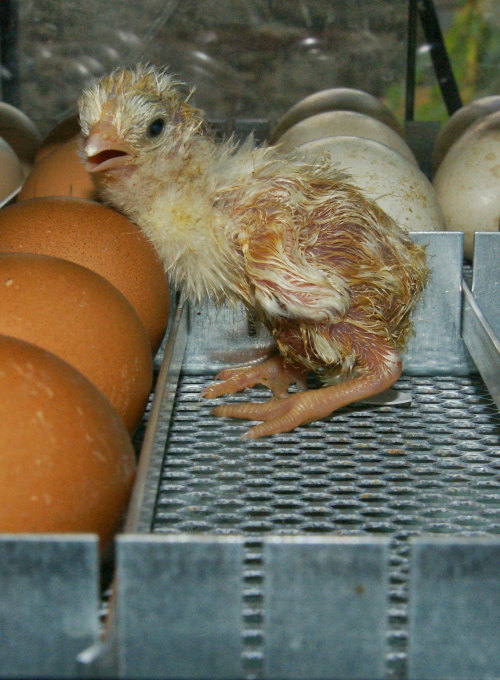Do eggs move and wiggle before they hatch?

In the days before your eggs begin to hatch they may move around as the chick pips internally and repositions itself inside the egg shell. The unhatched chicks will begin to peep to each other and as hatching time approached the movements will increase and the cheeping will get louder.
I hatch a lot of eggs every year and I often find myself looking at them just before they begin to hatch. Eggs always wiggle at least a little as the chick shifts in side the shell.
It is common for backyard chicken keepers to see the eggs move on their own inside the incubator after the eggs turners have been switched off.
Below: A video of a batch of my eggs wobbling in the incubator before they hatch.
On day 17 of incubation when you stop the eggs turning, the chicks break through the internal membrane into the air cell which has been forming in the bottom of the egg. The eggs roll around a little as the chicks move around inside the shell and position themselves for hatching.
Eggs move and wiggle before they hatch for a few reasons:
- The chick is growing and developing. As the chick grows, it needs more space inside the egg. This causes the egg to move around.
- The chick is positioning itself for hatching. In the days leading up to hatching, the chick will position itself with its head pointed towards the air cell. This allows the chick to breathe more easily and to hatch more smoothly.
- The chick is trying to break through the shell. As the chick gets closer to hatching, it will start to peck at the shell. This causes the egg to move and wobble.
The amount of movement that an egg exhibits before it hatches can vary depending on the species of bird. For example, chicken eggs tend to move more than duck eggs.
If you see an egg moving and wiggling before it hatches, there is no need to worry. This is a normal part of the hatching process.
Here are some additional things to keep in mind about eggs moving and wiggling before they hatch:
- The amount of movement will increase as hatching time approaches.
- The eggs may roll around a bit as the chick moves inside the shell.
- You may hear cheeping or peeping coming from the egg.
- The egg may appear to be cracked or broken.
If you see any of these signs, it is a good indication that hatching is imminent. Be patient and wait for the chick to emerge on its own. Do not try to help the chick hatch, as this could injure it.
However, if you see an egg moving and wiggling excessively, or if you hear any strange noises coming from the egg, it is best to consult with a veterinarian or an experienced poultry keeper.
Below: A just hatched chick in the incubator.

The peeping seems to be an effort to synchronise the hatching and helps the chicks familiarise themselves with their brood mates before they even see them. The hens also stop turning the eggs when the peeping begins inside the shell.
Egg start moving on their own from day 16 or 17 and to start with they may only rock around a little.
How long after eggs start moving do they hatch?
Eggs will begin to hatch between 3 and 4 days after they begin to move on their own. Some eggs may only rock a little and some may be slow starters and not move much at all in the days before they baby chicks emerge from the shell.
Below: You can see how much movement there is inside the shell even at this early stage.
You will also likely quite a lot of variability in the movement you notice from the eggs, some will rock about like mad and some may not move much at all.
When do chicks start chirping in the egg?
Unhatched chicks begin to chirp around day 17. A chick cannot chirp until it has pipped internally and taken air into it's lungs for the first time.
When you hear unhatched chicks beginning to cheep it is time to make sure the egg rollers are turned off and the humidity is increased inside the incubator ready for pipping to begin.
For the full story of what happens inside the egg during incubation.
